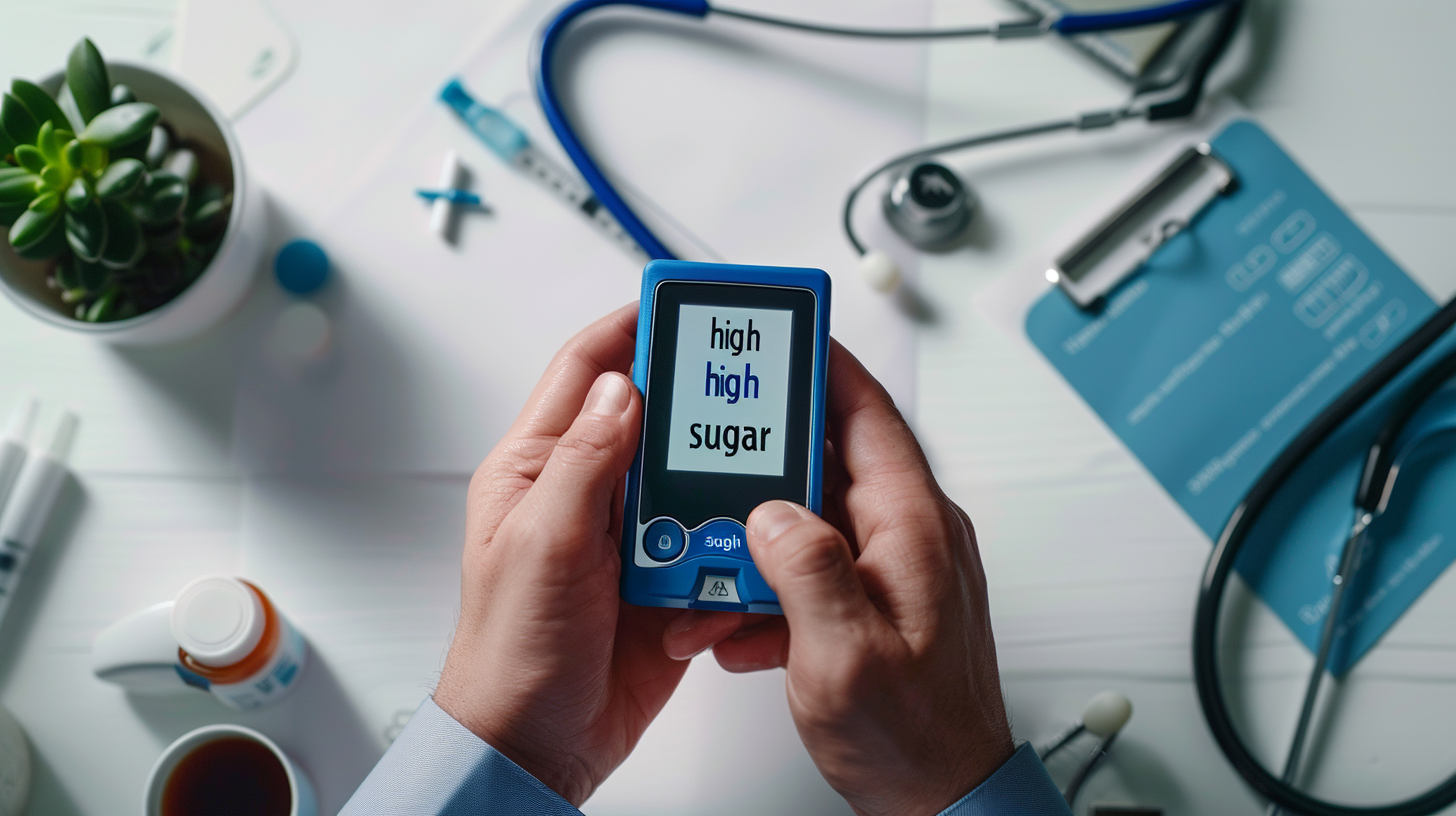
Maintaining balanced blood sugar levels is crucial for overall health, particularly for those with diabetes or at risk of developing it. When blood sugar levels become too high, it can lead to a host of health issues and long-term complications. Recognizing the signs of elevated blood sugar can help you take early action to manage your health effectively. Here are five key signs that your blood sugar may be too high.
1. Frequent Urination
One of the most common signs of high blood sugar is frequent urination, also known as polyuria. When your blood sugar levels are elevated, your kidneys work overtime to filter and absorb the excess sugar. However, when they can’t keep up, the excess glucose is excreted into your urine, drawing additional water from your body. This process leads to increased urination, which can be particularly noticeable at night.
Why It Happens
- Excess Glucose: High levels of glucose in the blood spill over into the urine.
- Increased Water Intake: To flush out the excess glucose, the kidneys draw more water into the urine, leading to frequent urination.
What to Do
- Monitor Blood Sugar Levels: Use a glucose meter to check your levels regularly.
- Stay Hydrated: Drink plenty of water to prevent dehydration.
- Consult a Doctor: If frequent urination persists, seek medical advice to adjust your diabetes management plan.
2. Extreme Thirst
Extreme thirst, or polydipsia, often accompanies frequent urination. As your body loses more water through urination, it becomes dehydrated, triggering a strong sensation of thirst. This is your body’s way of signaling the need to replenish lost fluids.
Why It Happens
- Dehydration: Increased urination leads to fluid loss, causing dehydration.
- Body’s Response: To compensate, your body triggers thirst to encourage fluid intake.
What to Do
- Drink Water: Ensure you drink enough water throughout the day.
- Avoid Sugary Drinks: Stick to water or sugar-free beverages to avoid raising your blood sugar further.
- Check Blood Sugar Levels: Regular monitoring can help you stay on top of your condition.
3. Fatigue and Weakness
High blood sugar levels can cause significant fatigue and weakness, affecting your daily activities and overall quality of life. When glucose can’t enter the cells due to insulin resistance or lack of insulin, your body can’t convert it into energy efficiently. This results in feelings of exhaustion and lethargy.
Why It Happens
- Energy Deficit: Cells are unable to access glucose for energy production.
- Metabolic Stress: The body works harder to manage high blood sugar, leading to fatigue.
What to Do
- Healthy Diet: Eat a balanced diet rich in whole grains, lean proteins, and healthy fats.
- Regular Exercise: Physical activity helps improve insulin sensitivity and energy levels.
- Consult a Healthcare Provider: If fatigue is persistent, it may indicate the need for adjustments in your treatment plan.
4. Blurred Vision
Blurred vision can be an alarming sign of high blood sugar. Elevated glucose levels can cause the lenses in your eyes to swell, leading to vision problems. If left unmanaged, high blood sugar can also damage the blood vessels in your retina, potentially leading to more severe eye conditions like diabetic retinopathy.
Why It Happens
- Swelling of Eye Lenses: High glucose levels cause the lenses to swell, distorting vision.
- Retinal Damage: Chronic high blood sugar can damage the blood vessels in the retina.
What to Do
- Monitor Blood Sugar Levels: Keeping your blood sugar within target ranges can help prevent eye problems.
- Regular Eye Exams: Schedule regular visits to an eye specialist to monitor and manage your vision health.
- Seek Immediate Medical Attention: If you experience sudden or severe vision changes, consult a healthcare professional promptly.
5. Slow Healing of Wounds
Slow healing of cuts and wounds is another sign that your blood sugar may be too high. Elevated glucose levels can impair circulation and damage blood vessels, reducing the supply of oxygen and nutrients needed for wound healing. Additionally, high blood sugar can weaken the immune system, making it harder for your body to fight off infections.
Why It Happens
- Impaired Circulation: High blood sugar damages blood vessels, hindering efficient blood flow.
- Weakened Immune System: Elevated glucose levels compromise the immune response, slowing the healing process.
What to Do
- Proper Wound Care: Clean and dress wounds promptly to prevent infection.
- Manage Blood Sugar: Keeping your blood sugar levels under control can improve healing times.
- Consult a Doctor: If you notice that wounds are taking longer to heal, seek medical advice to rule out complications.
Additional Tips for Managing High Blood Sugar
Maintaining balanced blood sugar levels requires a combination of lifestyle changes and medical management. Here are some additional tips to help keep your blood sugar in check:
Diet and Nutrition
- Balanced Diet: Focus on a diet rich in whole grains, vegetables, lean proteins, and healthy fats. Avoid processed foods and sugary snacks.
- Carb Counting: Keep track of your carbohydrate intake to avoid spikes in blood sugar.
- Regular Meals: Eat small, frequent meals to maintain steady blood sugar levels throughout the day.
Physical Activity
- Regular Exercise: Aim for at least 150 minutes of moderate-intensity exercise per week, such as walking, swimming, or cycling.
- Strength Training: Incorporate strength training exercises at least twice a week to build muscle and improve insulin sensitivity.
Monitoring and Medication
- Blood Sugar Monitoring: Regularly check your blood sugar levels as advised by your healthcare provider.
- Medication Adherence: Take medications as prescribed, and discuss any concerns or side effects with your doctor.
Stress Management
- Relaxation Techniques: Practice relaxation techniques such as deep breathing, meditation, or yoga to manage stress, which can affect blood sugar levels.
- Adequate Sleep: Ensure you get enough restful sleep each night, as poor sleep can impact blood sugar control.
Conclusion
Recognizing the signs of high blood sugar is essential for managing your health and preventing complications. By staying vigilant and taking proactive steps to manage your blood sugar levels, you can maintain better overall health and reduce the risk of long-term issues. If you experience any of the signs mentioned above, consult with a healthcare provider to develop a comprehensive plan tailored to your needs. Remember, effective blood sugar management involves a combination of healthy lifestyle choices, regular monitoring, and medical guidance.






Leave a Reply